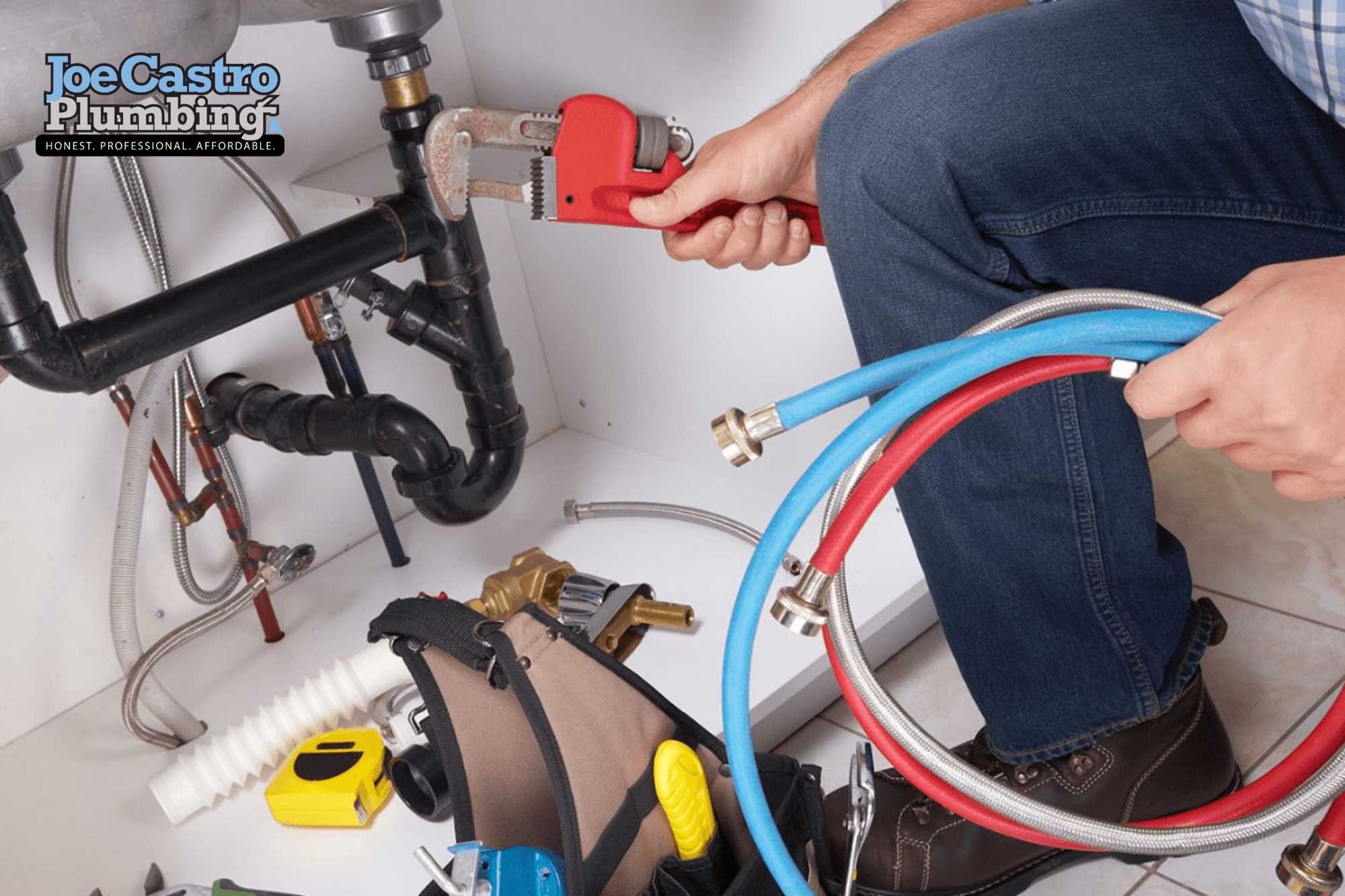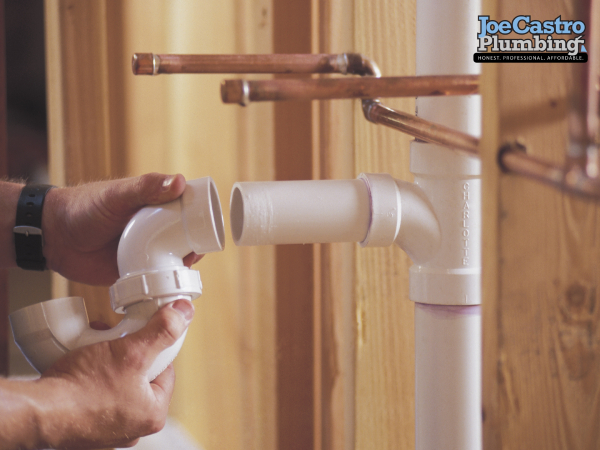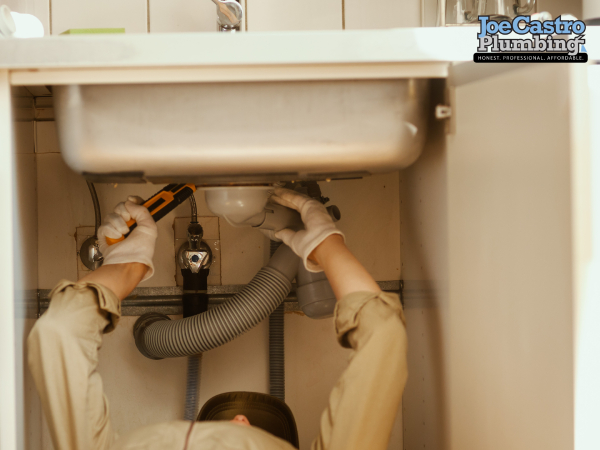If you’ve recently noticed a foul, rotten egg smell coming from your bathroom, kitchen, or even throughout your house, you’re not alone. This unpleasant odor is commonly caused by hydrogen sulfide gas, which has a distinct sulfur-like scent. Often, this odor signals an underlying plumbing issue that needs immediate attention. While it may be tempting to ignore the smell, it’s important to recognize that it can point to serious problems like a sewer gas leak, bacterial growth in your drains, or issues with your water heater.
The presence of such odors in your home could be caused by several potential issues that require prompt attention. In this guide, we’ll break down the common reasons behind these smells, including problems in specific areas of your home such as your bathroom sink or kitchen drain. Understanding these causes will help you take the right steps to eliminate the smell and restore a fresh, clean environment.
In this blog post, we’ll explore the common causes of the rotten egg smell in your home, how to fix it, and why scheduling professional Spring plumbing services is essential to prevent further issues.
Common Causes of the Rotten Egg Smell
Here are some of the most frequent causes of the rotten egg smell and why they happen:
1. Sewer Gas Leaks
Sewer gas leaks are one of the most serious causes of a rotten egg smell. These gases are produced when organic waste breaks down in your plumbing system. If your plumbing vents are clogged or if there’s a crack or break in the sewer line, these gases can leak into your home. The presence of this dangerous gas requires immediate professional attention. If you’re smelling rotten eggs in the house, it could be a sign of a sewer gas leak, and it’s essential to schedule a gas leak detection service as soon as possible. Prolonged exposure to these gases can be hazardous.
2. Bacterial Growth in Drains
Another common cause of rotten egg odors is the growth of bacteria in your drains. Over time, organic matter builds up in your plumbing system, creating an ideal environment for bacteria to thrive, especially in places where water flow is slow (such as your bathroom sink or shower drain). These bacteria produce hydrogen sulfide, leading to the foul smell. If your bathroom sink smells like rotten eggs, it’s likely a result of bacterial growth in the drain. Regular drain cleaning and maintenance can help prevent this buildup and restore fresh, clean air to your home.
3. Water Heater Issues
A malfunctioning water heater is another potential source of that rotten egg smell. If bacteria build up inside the water heater’s tank or the anode rod is corroding, it can create hydrogen sulfide gas. If you notice the smell of rotten eggs in hot water, it could be related to these issues. A plumber can flush your water heater to remove sediment and bacteria or even replace the anode rod if necessary to eliminate the odor. A Spring plumbing services can inspect and repair your water heater to keep it functioning properly and free from foul odors.
4. Old or Contaminated Plumbing Pipes
Older plumbing pipes, especially those made of galvanized steel or iron, can accumulate rust and debris. These conditions can trap bacteria and organic material, leading to the rotten egg smell. If your plumbing system is outdated, it may be time to consider a replacement or upgrade. Smelling rotten eggs in your house could also indicate that your pipes are no longer functioning optimally. A professional plumber can assess the condition of your pipes and offer solutions, including possible pipe replacement to eliminate the odor.

How to Address the Rotten Egg Smell: Plumbing Services in Spring, TX
Dealing with a persistent rotten egg smell in your home requires a detailed inspection by a professional plumber. While some minor issues can be handled with DIY solutions, such as cleaning your drains, many causes of this odor require professional expertise. Here’s how a plumber in Spring can help:
1. Drain Cleaning and Maintenance
If bacterial growth is the source of the smell, a plumber can perform thorough drain cleaning and maintenance to remove bacteria and eliminate the odor. They may recommend a regular cleaning schedule to prevent future buildup of organic matter and bacteria.
2. Sewer Line Inspection
For sewer gas leaks, a plumber will conduct a sewer line inspection to identify any cracks, breaks, or blockages in the system. This may involve using video cameras to inspect the interior of the pipes. If a sewer gas leak is found, your plumber can repair or replace the affected pipes to prevent harmful gases from entering your home.
3. Water Heater Service
For water heater-related odors, your plumber can flush the system to remove sediment and bacteria. If necessary, they can replace the anode rod or suggest upgrading your water heater if it’s old and inefficient. A professional plumbing spring service can address this issue effectively.
Preventative Measures: Keep Your Home Smelling Fresh
To prevent the rotten egg smell from returning, here are a few simple tips to keep your home fresh and your plumbing system in good working condition:
Schedule Regular Plumbing Inspections
Routine plumbing inspections are essential to catch small problems before they turn into costly, large-scale issues. By scheduling regular inspections, you can identify early signs of sewer gas leaks, pipe damage, or bacterial buildup that may lead to unpleasant odors. Plumbing professionals can also ensure your system is running efficiently, which can help save you money on energy bills and repairs down the line. Catching issues early can also improve the lifespan of your plumbing system.
Clean Your Drains Regularly
Regular drain cleaning is essential in maintaining a fresh-smelling home. Drain maintenance helps prevent the accumulation of debris, grease, and organic matter that can cause bacterial growth and foul odors. Use natural cleaning solutions, such as baking soda and vinegar, to keep your pipes clean and free from bacteria. For more stubborn clogs or buildup, consider having your drains professionally cleaned to ensure thorough treatment.
Replace Old Plumbing Pipes
Older plumbing pipes, especially those made from materials like galvanized steel or iron, can accumulate rust and debris over time, leading to foul smells and reduced water quality. These older pipes can also harbor bacteria that contribute to unpleasant odors. If your plumbing system is outdated, it might be time to replace old pipes with modern materials like PVC or PEX, which are more resistant to corrosion, bacteria growth, and odor-causing buildup. Upgrading your pipes can help avoid recurring plumbing problems and ensure the longevity of your system.
Maintain Your Water Heater
Your water heater plays a crucial role in your home’s plumbing system, and regular maintenance can help ensure it functions properly. Flushing your water heater annually helps remove sediment buildup and bacteria that can produce the foul smell of rotten eggs. Also, don’t forget to check the anode rod to ensure it is in good condition. A corroded anode rod can lead to sulfur smells, so replacing it when needed can prevent water heater odors. Scheduling professional water heater maintenance can also improve the efficiency of your unit, potentially lowering your energy bills.
Use Drain Covers and Filters
Installing drain covers or filters can help prevent hair, soap scum, and food particles from entering your pipes, reducing the chances of bacterial growth and unpleasant smells. It’s a simple but effective measure to keep your drains clean and functional.
Avoid Pouring Grease Down the Drain
While it might seem harmless, pouring cooking grease down your drain can lead to clogs and unwanted odors. Grease can solidify in pipes, causing blockages and creating a breeding ground for bacteria. Always dispose of grease properly by allowing it to cool and then discarding it in the trash.
Real-Life Example: Solving a Rotten Egg Smell Issue in Spring, TX
We recently helped a homeowner on Lakeshore Drive in Spring, TX, who was experiencing a persistent rotten egg smell in their bathroom. After a thorough inspection, our team discovered a bacterial buildup in the drain causing the odor. We performed a professional drain cleaning, eliminating the bacteria and restoring fresh air to their home. Our customer was thrilled to have the problem resolved so quickly and effectively!
Why Choose Joe Castro Plumbing for Plumbing Services in Spring?
At Joe Castro Plumbing, we specialize in diagnosing and fixing plumbing issues that cause unpleasant odors, including the rotten egg smell. Our team of expert plumbers in Spring is dedicated to providing efficient and reliable plumbing services. Whether you need a water heater flush, drain cleaning, or sewer line inspection, we have the tools and expertise to solve your plumbing issues and restore comfort to your home.
Whether you’re dealing with a malfunctioning water heater that’s producing sulfur odors, a clogged drain causing bacterial growth, or a possible sewer gas leak affecting the air quality in your home, our team has the tools and expertise to tackle any plumbing challenge.
Don’t let plumbing issues linger and disrupt the comfort of your home. If you’re experiencing unpleasant odors or suspect something isn’t quite right with your plumbing, it’s time to get expert help. Joe Castro Plumbing is here to provide fast, reliable, and professional service.





